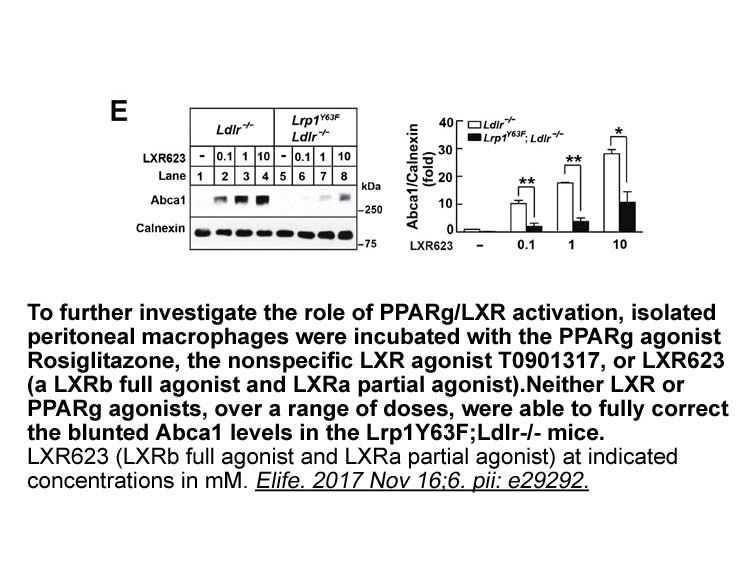Archives
The current study sought to expand on this body
The current study sought to expand on this body of literature by examining neural activation to reward in a group of binge-drinking adolescents compared to alcohol/drug-naïve controls using a prospective, longitudinal approach. Adolescents performed a modified version of the Wheel of Fortune (WOF) task (Ernst et al., 2004), a reward-based decision-making task, during functional magnetic resonance imaging  (fMRI). Based on previous findings in adult alcoholics of decreased reward-related activation (Beck et al., 2009; Wrase et al., 2007), as well as alcohol\'s propensity to affect the reward system during adolescence (Pascual et al., 2009; Philpot et al., 2009), we hypothesized that binge-drinking adolescents would show reduced Leupeptin activation to reward outcome, compared to their non-using peers, in reward processing regions, such as the mPFC and ventral striatum.
(fMRI). Based on previous findings in adult alcoholics of decreased reward-related activation (Beck et al., 2009; Wrase et al., 2007), as well as alcohol\'s propensity to affect the reward system during adolescence (Pascual et al., 2009; Philpot et al., 2009), we hypothesized that binge-drinking adolescents would show reduced Leupeptin activation to reward outcome, compared to their non-using peers, in reward processing regions, such as the mPFC and ventral striatum.
Materials and methods
Results
Discussion
To our knowledge, the current findings are the first to report alterations in brain functioning during reward processing in adolescent binge drinkers, using a prospective longitudinal design. Since binge drinking is a commonly observed alcohol use pattern during adolescence, reported by nearly a quarter of youth in 12th grade (Johnston et al., 2014), it is important to understand whether this pattern of alcohol use may alter adolescent reward processing. Alcohol-induced neurotoxicity during adolescence (Jacobus and Tapert, 2013) may have long-term effects that extend well into adulthood, thus signaling the need to identify brain areas affected by heavy alcohol consumption during neuromaturation.
Conclusions
To our knowledge, this is the first study to report on adolescent binge drinkers and brain activity during reward processing, using a longitudinal design. The cerebellum has consistently been implicated in alcohol-related brain damage across studies of adults and adolescents. We contribute to this literature by showing that binge drinkers have reduced reward-related response in the left posterior cerebellum (lobule VIIa/crus I), a pattern that was not present prior to heavy alcohol use. Lobule VIIa/crus I of the posterior cerebellum is a region implicated in affective processing, cognitive functioning, as well as reward salience (Moulton et al., 2014; Stoodley, 2012). This suggests that response to reward prese nce may be blunted in binge drinkers due to alterations of pathways to limbic and/or reward systems, which could potentially drive further risky drinking behavior. Importantly, these findings may contribute to targeted early intervention strategies in adolescent binge drinkers, as it suggests that reward functioning may be altered in youth who have just begun to engage in heavy alcohol use.
nce may be blunted in binge drinkers due to alterations of pathways to limbic and/or reward systems, which could potentially drive further risky drinking behavior. Importantly, these findings may contribute to targeted early intervention strategies in adolescent binge drinkers, as it suggests that reward functioning may be altered in youth who have just begun to engage in heavy alcohol use.
Conflict of interest
Acknowledgements
This study was supported by the National Institute on Alcohol Abuse and Alcoholism (R01 AA017664 – Nagel; U01 – AA021691 – Nagel, and P60 AA010760 – PI: Crabbe). We would like to thank the research assistants and volunteers of the Developmental Brain Imaging Lab for their assistance with data collection.
Introduction
Recent studies have demonstrated associations between cognitive deficits and (heavy) drinking in adolescents (Fernie et al., 2013; Hanson et al., 2011; Khurana et al., 2012; Nigg et al., 2006; Squeglia et al., 2009; Tapert et al., 2002). Especially binge drinking seems to be associated with cognitive deficits in adolescents and young adults (Hermens et al., 2013; Peeters et al., 2014). An important question that arises from these findings is whether these deficits are present prior to and predict the onset of drinking or whether the (heavy) use of alcohol induces these deficits. Although this relationship has been investigated in several studies (Fernie et al., 2013; Hanson et al., 2011; Khurana et al., 2012; Nigg et al., 2006; Squeglia et al., 2009; Tapert et al., 2002), none of these studies have included alcohol-naïve adolescents at baseline, which clearly limits the interpretation of the associations found. In the present study we therefore examined whether the relative weaknesses in executive functions (i.e., working memory and response inhibition) predict the initiation of the first alcoholic drink and the first binge drinking episode in young adolescents.